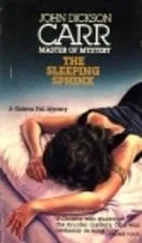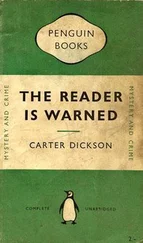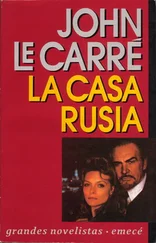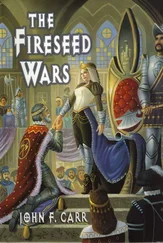'And the shopping list?' I asked him again.
He peered whimsically into his glass. 'The targeting of one side, my dear Palfrey, is based on that side's assumptions about the other side. And vice versa. Ad infinitum . Do we harden our silos? If the enemy can't hit them, why should we bother? Do we superharden them - even if we know how - at a cost of billions? We're already doing so, as a matter of fact, though it's not much sung about. Or do we protect them imperfectly with SDI at a cost of more billions? Depends what our prejudices are and who signs our pay cheque. Depends whether we're manufacturers or taxpayers. Do we put our rockets on trains or autobahns or park them in country lanes, which happens to be this month's flavour? Or do we say i(s all junk anyway, so to hell with it?'
'So is it ending or beginning?' I asked.
He shrugged. 'When did it ever end? Turn on your television set, what do you see? The leaders ofboth sides hugging each other. Tears in their eyes. Looking more like each other every day. Hooray, it's all over! Bollocks. Listen to the insiders and you realise the picture hasn't altered by a brush-stroke.'
'And if I turn my television off? What will I see then?'
He had ceased to smile. Indeed his good face was more serious than I had ever seen it before, though his anger – if such it was – seemed to be directed at no one but himself.
'You'll see us . Hiding behind our grey screens. Telling each other we keep the peace.'
The elusive truth that Ned was speaking of came out slowly and in a series of distorted perceptions, which is generally'the case in our secret overworld.
At six p.m. Barley was seen to 'exit' the VAAP offices, as our screens now insisted on advising us, and there was a flurry of apprehension that he might be drunk, for Zapadny was a drinking buddy and a farewell vodka with him was likely to be just that. He emerged, Zapadny with him. They embraced fulsomely on the doorstep, Zapadny flushed and a little excitable in his movements and Barley rather rigid, hence the watchers' worry that he was drunk, and their rather odd decision to photograph him - as if by freezing the moment they might somehow sober him up. And since this is the last photograph of him on the file, you may imagine how much attention has been paid to it. Barley has Zapadny in his arms, and there is strength to their embrace, at least on Barley's side. In my imagination, if no one else's, it is as if Barley is holding the poor fellow up in order to give him the courage to keep his half of the bargain; as if he is literally breathing courage into him. And the pink is weird. VAAP is a former school on Bolshaya Bronnaya Street in the ccntre of Moscow. It was built, I guess, at the turn of the century, with large windows and a plaster faqade. And this plaster was painted in that year a light pink, which in the photograph is transformed to a flaming orange, presumably by the last rays of a red sun. The entwined men are thus caught in an unholy scarlet halo like a red flash. One of the watchers even gained the entrance hall on the pretext of visiting the cafeteria, and tried to achieve the reverse shot. But a tall man stood in his way, watching the scene on the pavement. Nobody has identified him. At the news-stand, a second man, also tall, is drinking from a mug, but not with much conviction for his eyes too are turned to the two embracing figures outside.
The watchers took no note of the scores of people who had passed in and out of the VAAP building during the two hours Barley had been in the place, how could they? They had no idea whether the visitors had come to buy copyrights or secrcts.
Barley returned to his hotel where he had a drink in the bar with a bunch of publishing cronies, among them Henziger, who was able to confirm, to London's relief. that Barley was not drunk - to the contrary, that he was calm and in thoughtful spirits.
Barley did mention in passing that he was expecting a phone call from one of Zapadny's outriders - 'We're still trying to stitch up the Trans-Siberian thing.' And at about seven p.m. he suddenly confessed himself ravenous, so Henziger and Wicklow took him through to the Japanese restaurant, together with a couple ofjolly girls from Simon & Schuster whom Wicklow was counting on for light relief to ease Barley's passage to his evening rendezvous.
Over dinner Barley sparkled so brightly that the girls tried to persuade him to come back to the National with them, where a party was being thrown by a group of American publishers. Barley replied that he had a date but might come on afterwards if it didn't run too long.
Exactly at eight p.m. by Wicklow's watch, Barley was summoned to the telephone and took the call in the restaurant, not five yards from where the party was sitting. Wicklow and Henzigcr strained, as a matter of routine, to catch his words. Wicklow recalls hearing 'That's all that matters to me.' Henziger thinks he heard 'We've got a deal' but it might have been ' not a deal' or even 'not yet real'.
Either way, Barley was cross when he resumed his seat and complained to Henziger that the bastards were still holding out for too much money, which Henziger regarded more as a sign of his internal stress than of any great concern for the Trans-Siberian project.
Quarter of an hour later the phone rang again and Barley returned from his conversation smiling. 'We're on,' he told Henziger jubilantly. 'Scaled, signed and delivered. They never go back on a handshake.' At which Henziger and Wicklow broke out clapping and Henziger remarked that 'we could do with a few more of them in Moscow.'
It seems not to have occurred to either man that Barley had never before shown so much enthusiasm for a publishing agreement. But then what were they supposed to be looking for, except the night's great coup?
Barley's dinner conversation was later painstakingly reconstructed, without result. He was talkative but not excitable. His subject was jazz, his idol was Slim Gaillard. The great ones were always outlaws, he maintained. jazz was nothing if not protest. Even its own rules had to be broken by the real improvisers, he said.
And everyone agreed with him, yes, yes, long live dissent, long live the individual over the grey men! Except nobody saw it that way. And again, why should they?
At nine-ten p.m., with less than two hours to kill, Barley announced that he would stretch out in his room for a bit, he had letters to write and business to clear up. Both Wicklow and Henziger offered to give him a hand, for they had orders not to leave him to himself if they could avoid it. But Barley declined their offers and they could not insist.
So Henziger took up his post in the next-door room and Wicklow placed himself in the lobby while Barley stretched out, though in reality he cannot have stretched out even for a second, for what he accomplished verges on the heroic.
Five letters were traced to this short span, not to mention two telephone calls to England, one to each of his children, both monitored within the United Kingdom and bounced through to Grosvenor Square but neither of operational consequence. Barley was merely concerned to catch up with family news and enquire after his grand-daughter, aged four. He insisted she be brought to the telephone, but she was too shy or too tired to talk to him. When his daughter Anthea asked him how his love-life was, he replied 'complete', which was held to be an unusual sort of reply. but then the circumstances were not usual.
Ned alone remarked that Barley had said nothing about returning to England the next day, but Ned was by now a voice in the wilderness and Clive was seriously considering taking him off the case altogether.
Barley also wrote two shorter letters, one to Henziger, one to Wicklow. And since they were not tampered with, so far as the laboratories could afterwards determine, and since – even more remarkable – the hotel delivered them to the correct room numbers promptly at eight o'clock next morning, it was assumed that these letters were in some way part of the package that Barley had negotiated while he was inside the VAAP building.
Читать дальше










